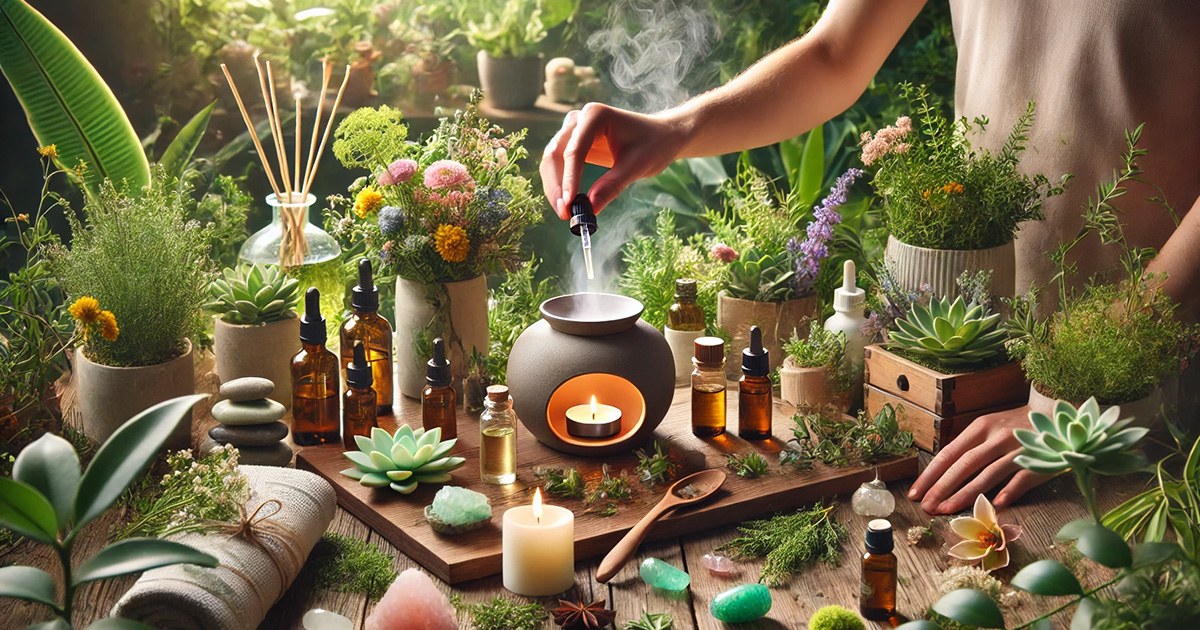What Is Aromatherapy? Benefits and Usage Guide

Historically, western healthcare primarily relied on medications to treat various health conditions. However, the rise of opioid abuse and the limitations of traditional medicine have led to a growing interest in alternative healing methods. Inspired by Eastern philosophies, practices like aromatherapy have gained prominence as natural and effective approaches to promoting well-being.
Aromatherapy, the therapeutic use of essential oils derived from plants, offers a holistic approach to addressing a range of mental health concerns. By engaging the olfactory system and interacting with the brain's emotional centers, aromatherapy can influence mood, reduce stress, and promote relaxation. In today's fast-paced world, where mental health challenges are increasingly prevalent, aromatherapy presents a valuable tool for improving overall well-being.
Comprehensive Guide of aromatherapy
Aromatherapy, the therapeutic use of essential oils, offers various techniques to promote well-being. Here are some common methods:Diffusion
Use an essential oil diffuser to disperse calming aromas throughout your space.Inhalation
Experience the calming effects by inhaling directly from the Aroma Essential Oil. This method allows you to engage with the herbal essence of the oils, delivering immediate benefits for your mind and body.Massage
Incorporate diluted essential oil into a massage for relaxation and therapeutic benefits.Bath
Add a few drops of essential oil to a warm bath for a relaxing spa experience.Important Considerations
- Dilution: Always dilute essential oils before applying them to your skin to avoid irritation.
- Safety: Keep essential oils away from open flames, avoid ingestion, and store them out of reach of children and pets.
- Consultation: Consult with a healthcare professional before starting aromatherapy, especially if you have underlying health conditions or are pregnant.
Potential Benefits of Aromatherapy
Aromatherapy is often sought for its potential benefits in:- Stress Reduction: Helping to alleviate stress and promote relaxation.
- Anxiety Management: Supporting the reduction of anxiety and promoting calmness.
- Mood Enhancement: Improving mood and emotional well-being.
- Sleep Improvement: Promoting better sleep quality and reducing insomnia.
- Pain Relief: Offering temporary relief from pain and discomfort.
- Immune System Support: Enhancing the immune system's function.
- Respiratory Health: Supporting respiratory health and easing congestion.
Precautions and Safe Use of Essential Oils
While most essential oils are generally safe, there are precautions to keep in mind and potential side effects, especially if you're taking prescription medications.Avoid applying essential oils directly to your skin. Always dilute them with a carrier oil, and perform a skin patch test before use. It's important to note that citrus oils can increase your skin's sensitivity to sunlight, so avoid using them if you'll be in the sun.
Children, pregnant, or nursing individuals should use essential oils carefully and only under the guidance of a healthcare professional.

